Chokwe Lumumba IS the Mayor of Jackson, MS!
Chokwe Lumumba, with his son, Chokwe Antar Lumumba, and daughter, Rukia
Lumumba, celebrates his primary victory on May 21. Two weeks of hard
campaigning later, he’s Mayor Lumumba, having won the general election
by a landslide.
Bravo! Wow! Jackson, MS, got it right! The call is out for all others to be inspired!
I know I'm not the only one who read this subject line and had to do a kind of double take.
Jackson, the capital of "the poorest and most backward state in the
Union" (as it was often characterized) -- the state of Gov. Ross
Barnett; Emmit Till; Cheney, Goodman, and Schwerner (where Cheney's
grave stone is pocked with bullet holes and is routinely overturned);
Medgar Evers, James Meredith, the RNA shoot-in, the Choctaw reservation,
the Greenwood Flood (like Rosewood and Tulsa, not to be unknown), and
Ronald Reagan's launch of his "race-card" presidential campaign -- has
elected Chokwe Lumumba as its mayor!
(This has even more irony in light of the RNA reference. As I
recall from when I met Chokwe in Chicago, with Haki and others of the
African Liberation Support Committee, he was very much representing the
RNA, and, if senior memory serves, even organized a national "POW{ rally
in Mississippi, around the well known RNA political position that
African Americans were made citizens of the US without our consent or
will, and should be more correctly recognized and treated in the
international community as Prisoners of War, entitled to justice
according to all of the conventions that govern that status.)
Ironies and surprises aside, what is so much more significant abut
this is, as you point out, the SUBSTANCE of what he brings to the
office, and we can especially be gratified that the first subject on
which his thinking has come to light is education. What can it be
called short of the cool water of refreshment from an oasis for those
who have been traveling the desert wasteland of what "education" has
become throughout the rest of the country. And, like any good scholar
and student of composition, he backs up his position with concrete,
tangible examples, like the teacher who organized the trial of Hansel
& Gretel (that should inspire at least a few more trials around the
land), and his clear statement of his goal of a COMPLETE education, not
simply a biased one.
Did I hear correctly that the Jackson public school system has a
99% African American student population? Can that be? Can that be a
question of overall demographics (which would easily explain his
election victory, perhaps), or does it reflect a trend of virtually all
non-African American students being transferred to charter and private
schools (a resurgence of an old-time practice)?
Whatever the case, I certainly agree with your assessment of what
this means for progressive educators everywhere, in terms of providing
an example and a "Victory-Space" for thought and action. (Any reader of
Sun Tzu's "The Art of War" would know how valuable that is.) Of
course, as both you and Bro. Chokwe have made clear, this is not an
occasion for giddiness: "Now the work really begins!" (Reminiscent of
the famed rooftop scene in Pontecorvo's "The Battle of Algiers": "You
know, Ali, it is very difficult to start a revolution. It is even more
difficult to sustain it. And the most difficult is to win it. But we
will see that it is after we have won, that we will discover that our
real difficulties have begun.")
We note with interest that the work, as he outlined in the video,
is not only in the field of education, which will certainly benefit from
the kind of creative thinking and action he describes; he also
addressed he fact that economic impoverishment, along with poor
education, form two of the legs that support and cause crime. This is
right on time with this year's 50th anniversary of the March on
Washington for Jobs and Justice. Dr. King was keenly aware of the fact
that the legal battle for equal Civil Rights was only a part of the
battle, and that even that victory was hollow without economic justice,
which is why the very next phase of the struggle he led was the Poor
People's Campaign (in which Mississippi was prominently represented),
which he did not live to lead.
Dr. King knew, and his enemies knew, that economic justice was not
just a matter of the distribution of monetary wealth, but entailed the
whole panoply of factors that he outlined in the speech which sealed his
fate, "A Time to Break the Silence," at Riverside Church in NY on April
4, 1967. The distribution (or lack thereof) of opportunities, the
simple presence or absence of hope, the reality (or lack thereof) of
representative politics, the economics of warfare, and of he prison
system, are all themes that continue to haunt us today as much as they
did in the 1960s, if not even more so (in both depth and breadth), to
which can be added the more recent awareness of environmental justice
issues.
A Chinese proverb reminds us that "A journey of a thousand miles
begins with a single step." You are probably aware of the recent
interview that was held with Mumia Abu Jamal, in which he posed a very
pertinent question: Now that we have elected the nation's first African
American president, after his two terms in office, what will we have to
show for it? What indeed? The election of Barack Hussein Obama, who
accepted his party's nomination on the anniversary date of the March on
Washington, of Emmit Till's murder, and of the landfall of hurricane
Katrina 50 years to the day after that unpunished crime, was certainly A
step on that long journey, and not the first one, but it can be argued
that the election of Chokwe Lumumba as Mayor of Jackson, MS, is an even
greater step.
And that is because, as my activist sister/friend/mentor in the
Bronx, "Aunt Bunchy" Fox has often observed, "We can travel a thousand
miles in our heads, but if our foot moves one inch forward, that is a
real inch of progress." Chokwe Lumumba embodies the change of which he
speaks. This is a real step forward. Yet we know that his election
does not guarantee any "walk in the park" when it comes to
implementation in the face of the entrenched forces that are the cause
and substance of the problem in the fist place. The specter of a public
school system in a sizable city educating its predominantly Black
student population to be knowledgeable of he world, appreciative of
their own self worth and of that of those around them, to learn from
domestic workers as much as from captains of industry, to be more than
just student-loan-enslaved parts of some global corporate "workforce" is
nothing less than revolutionary thinking. (In any other context, it
would be just common sense, and the birthright of every child. In this
context it is "revolutionary" because it stops the pain of having one's
head hit repeatedly with a hammer, as if THAT were somehow normal and
acceptable.)
You are very right: We are all on call. Like it or not, ready or
not, with or without us, the real work has begun in earnest, now that it
has a real and tangible identifiable face and place.
Asante sana for sharing this,
Dinizule Gene Tinnie
Miami, FL
===============================
Education Activists,
History was made last nite in Jackson, MS! The citizens of Jackson elected an outwardly progressive Black mayor whose roots run deep within the Black Liberation Movement of the 60s,70s, and 80s. Chokwe Lumumba is an attorney for political prisoners and the people who became a City Councilmember in Jackson.
He, along with numerous ordinary Jacksonians, the Malcolm X Grassroots Movement and other progressive groups and individuals organized a successful mayoral campaign against the Republican and Democratic Party establishments' status quo candidates.
As Brother Mayor Lumumba states in his victory speech: now the work really begins!
Those of us who want to see a free, antiracist/antisexist and democratic public education system constructed in Jackson, should be On Call to support Mayor Lumumba and his education team in making it a reality.
I'm On Call! Are You?
The video below gives us a hint of what Lumumba and his education team envision for this mainly Black Mississippi city.
Chokwe Lumumba becoming mayor of Jackson, MS gives the progressive education movement another "Victory-Space" to help show the rest of the nation what quality education, cultural excellence and parental/student/educator democratic involvement looks like.
VIDEO: http://bcove.me/j0opc8w2
In Struggle,
Sam Anderson
=====================
Chokwe Lumumba Will Be Jackson's Next Mayor
Ward 2 Councilman Chokwe Lumumba, a longtime activist and
attorney, wants to bring his experience as a human-rights organizer to
the Jackson mayor’s race.
Photo by Trip Burns.
#Editor's
Note: Councilman Chokwe Lumumba has been elected mayor of Jackson by a
large margin. Here is his JFP interview and other articles.
Chokwe Lumumba Endorsement Interview
#Chokwe
Lumumba first came to Jackson in the early 1970s as a civil-rights
activist. He returned to Michigan shortly after to attend law school,
returning to Mississippi in 1988.
#He's been in Jackson ever since, and now he's running for mayor of the capital city.
#If
his views and policies don't set him apart, his name will stand out on
the ballot. Lumumba chose the name--which he stresses is African, not
Muslim--in the late 1960s.
#"I
picked the name Chokwe because in my African history class I learned
that the Chokwe tribe, which is a tribe that still exists, was one of
the last tribes to resist the slave trade successfully in northeast
Angola," Lumumba told the Jackson Free Press. "The name literally means
'hunter.'
#"The
second name, Lumumba, was the name of a great African leader who began
to lead Africa to decolonize, to independence. He was from the Congo.
Lumumba means 'gifted.' So literally, it means 'gifted hunter.'"
#When
he was growing up, Lumumba felt close to the civil-rights conflicts in
the South as the son of an Alabama-native mother. It didn't take long
for him to join to fight for freedom, and he hasn't given it up, either.
For more than 35 years, Lumumba has defended civil-rights cases in the
courtroom and from the rally podium. He also helped start the New
Afrikan People's Organization.
#He
helped defend Jamie and Gladys Scott, who received double life
sentences for a 1993 armed robbery that netted anywhere from $11 to
$200, depending on who was testifying. In December 2010, then-Gov. Haley
Barbour suspended the sisters' sentences on the condition that Gladys
donate a kidney to her sister. "We thanked him when he let them go,"
Lumumba said. "We're still trying to get them off parole. We haven't
done that."
#Lumumba
has also represented rapper Tupac Shakur as well as Lance Parker, who
was accused of trying to shoot the gas tank during the assault on a
white trucker, Reginald Denny, during the 1991 Rodney King riots in Los
Angeles. Lumumba, who won an acquittal for Parker, argued that his
client discharged his weapon to aid Denny.
#Lumumba
has served one term as Jackson's Ward 2 city councilman. There, he has
continued to fight for more minority representation on city contracts,
and gladly reminds listeners that the city is between 75 and 80 percent
black on a regular basis. The JFP sat down with Lumumba in his office on
Mill Street to talk about his campaign for mayor.
#What role did you play in forming the New Afrikan People's Organization?
#I
was one of the founders of the New Afrikan People's Organization. That
was in 1984. I was involved in it in the city of Detroit. It was founded
in three different locations: one was in Detroit, one was in Los
Angeles and one was in New York.
#What is the goal and purpose of that organization?
#Basically:
human rights for human beings, with the focus on trying to vindicate
the oppression of black folks, trying to make sure that black people are
put in a position for self-determination. When we say
self-determination, what we mean is giving the opportunity to govern
themselves commensurate with their numbers in the particular population.
#What
that means is that we feel that the thing that hurt us the most, in
terms of the whole estrangement from Africa, the enslavement and middle
passage, is not actually the specific experiences of slaves on middle
passage, but the liquidation of our rights to self-government. We feel
that any people, not just us--we support this for all people, in terms
of self-determination--have to be given an opportunity to participate in
self-governance, economic development, political development and things
of that nature.
#Some
people have interpreted it to say that we're separatists or something.
That is not the case. We've never been separatists, nor have we ever
been segregationists. What we're saying is that whatever our numbers are
in a particular population, we should be able to participate in
governance commensurately with those numbers.
#In
areas that we are in the majority, we have to be able to maintain the
majority of that responsibility. (We're) not trying to subjugate or
discriminate against other people, because our highest goal is human
rights. We're very tight in respect to the universal declaration of
human rights.
#What
we want to do is do a better job than our predecessors in terms of
those who control us, not turning the tables. We're trying to do a
better job. We're trying to fight not just for a different complexion of
people in office, but a better idea in office and things of that
nature.
#Didn't the Republic of New Afrika call for a separate black state?
#The
Republic of New Afrika advocated for an independent nation. That's
different from a separate nation. Well, it's different in this respect:
At no point in time did the Republic of New Afrika advocate for anything
that was going to throw white people out or exclude white people....
#My
philosophy has always been human rights for human beings. To underscore
that, I'm the one that helped sponsor the anti-racial profiling
ordinance and that's going to help immigrants if we get it rightly
enforced. Occupy Jackson was a predominantly white organized movement
where they wanted to stay at Smith Park. I'm the one that spoke up for
them, not quietly but publicly.
My First Encounter With Chokwe Lumumba
Soon after the JFP launched, Editor Donna Ladd tried to cover a rally for Chokwe Lumumba—where white media were not welcome.
#We've
heard you mention the percentage of African Americans in Jackson and
wanting to see that percentage more in government. As mayor, how would
you look to implement that belief, and would you use the belief in
looking at hires for city jobs and city contracts?
#What
I'm looking for is the empowerment of the population of the 80 percent
(African American population) that's there. As far as I'm concerned, I'm
looking for the empowerment of all the population. You can check my
background in terms of the cases I've had and causes I've championed. As
far as that's concerned, there were a lot of poor white people, too.
#It
so happens that in the city of Jackson, except for the south side where
you do have some poor white people who, I believe, are (of) modest
income, for the most part, what we're greeted to on the northeast side
are white people who are fairly well off. They are not really in the
economically oppressed class.
#What
I am looking for is the empowerment of that population, the empowerment
of the urban population, period. Black population is principal of that,
because it's 85 percent of it, or 80 percent of it. What I'm looking
for is we need that 85 percent to have jobs. We can never get it done if
we have people who come in and give the black population 20 percent of
the jobs, give another part of the population 60 percent of the jobs and
another one 20 percent of the jobs. That's not going to work. ...
#It's
self-defeating, not only for the black population, but it's
self-defeating for the city of Jackson. If most of your population is
not enjoying the opportunity to get work, then of course, you're going
to be a poor city. ...
#If
you're fighting to keep that 80 percent in peonage, then your whole
state's going to be in peonage. You're going to have some rich people,
but a good number of the white people are going to be poor. The black
people are going to be poor. The state is going to be poor, relatively
speaking, to other states.
#That's
what I don't want. Do I expect there to be white businesses and white
jobs and plenty of them? Of course. Any of the white businessmen who
have dealt with me can tell you that.
#Give an example.
#I
have given a lot of the impetus for the Siemens (water and sewer
improvement) project, for instance. Siemens came to me, for whatever
reason, before they came into the city council, and before, I believe,
they came to the (Johnson) administration. I can't speak to when they
came to the administration, but it was at least a couple years before
the city council actually got it. People brought Siemens to me to ask me
what my view was in Siemens trying to get this (water) project.
#They
were trying to convince me there would be a lot of jobs available, and
it would be good for the city. So what I did is, I told them what I tell
everybody. I said, 'Yeah, we want your business. We need business here
in the city. There are two things that I'd like to see. I'd like
(commitment) to giving jobs to Jacksonians, and I'd like to see you
committed to what we call the so-called minority level. That is, as far
as your contractors and sub-contractors, a good portion of them are
either black or Hispanic so other people have a chance to do these
contracts years down the road, other than the small groups we have
working them now.
#Those
are the two things I said. I thought (Siemens' officials) were genuine.
I still think they're genuine, in terms of saying what they're going to
do. If you look at what they've done, it's pretty representative.
#That's
the kind of stuff I'm talking about, OK? I'm not talking about cutting
anybody out of this. Certainly, I'm not trying to exclude businesses,
which would be profitable to Jacksonians from coming in.
#I'm
not just trying to get black people to come to this city. I think if we
do what's supposed to be done in this city, the city is going to
attract a lot of people, not only black and white, but globally. That's
what happens to cities (that) really do well.
#Go
way back to Cairo, Egypt. Egypt used to be black, but it attracted
cultures from everywhere. That's why it looks like it does now. The same
thing with New York City.
#That's
what I want to see. I want to see an opportunity for us to advance
immensely here in Jackson. I'm not going to be counting the number of
blacks who walk through the door, or the number of Hispanics who walk
through the door. Anybody that wants to get down with this process and
really do it well, I'm down with them.
#How,
specifically, as mayor would you assure that when contractors come in
that they do give jobs to Jacksonians and specifically to minority
Jacksonians?
#I
think there are two ways. Number one, we're already supposed to have a
policy that is supposed to encourage--and I'll have to revisit the
policy--but last I heard, it was supposed to encourage 8 percent
minority involvement. It's supposed to be a goal as opposed to a quota.
Lumumba's New 'Frontier'
Chokwe Lumumba has a fascinating, if controversial, history in Jackson and beyond.
#8 percent?
#I
think it's 8 percent, the last I heard. Harvey (Johnson) says he
strives for higher than that. I think that the actual, spoken policy is 8
percent, which is ridiculously low. I've thought about having an
articulating policy that we can have agreed upon and approved by the
City Council, hopefully, which would be larger than that.
#First
of all, I think we should have a goal. You really would have to talk
about this in terms of a goal. You can't make it a quota. You want to
have a goal of encouraging all businesses that come here to have more
than 50 percent, or 60 percent of their employees be Jacksonians. You
want at least 50 percent of their contractors and sub-contractors,
except in special situations, to be minorities.
#That's
how we'll make it work. When these people employ more people from the
city, that's going to increase the income in the city. They contract
with more sub-contractors that reflect the population of the city, and
other oppressed people who may not live in the city. They live around
the city. If they do that, that's going to spread the skills pool, and
the contractor pool, getting people where they can do projects big
enough where they can get bonded, they can get insured. Then we can have
a bigger pool of people participating. I believe the bigger the pool
participating, the more the economy grows.
#One
of our problems right now is that even as far as black people are
concerned, or minorities, (we're) building too small of a pool. If you
keep shipping the same contracts to the same people, first of all, in
many instances they're not really able to handle all the contracts. So
what they do is go out and contract someone else the work that they're
supposed to be doing, and it defeats the whole purpose to why you gave
it to them in the first place.
#By
having those two things as goals--A, having those who you contract with
having over 50 or 60 percent of their people from Jackson, and then
having at least 50 percent of the sub-contractors being from the
minority pool, and that includes women, Hispanics, blacks, and Asians
and others--those two things, I think, would help economically help our
population.
#You
seem to be suspicious of capitalistic enterprises. How will that affect
your relationship to businesses and business groups in terms of
attracting them Jackson?
#We're
in a transitional economy in many respects. Capitalism, at its rankest
form, is not a humanistic economic system. It allows the most powerful
to tear into the economic fabric of the least powerful. It allows people
with big money to control people with no money, low money and small
money in many ways including politically because the people with the
money the determinant of who runs for office.
#How receptive do you think white business owners and groups like Downtown Jackson Partners will be to your ideas?
#I'm
very much for the development of downtown, and I think it can be done
together with outskirt areas: Highway 49, Medgar Evers. Highway 18. We
need a frontage road on parts of I-20. The infrastructure areas planned
for downtown need to be expanded beyond downtown.
#You're
not going to get any major department store to relocate in downtown,
Jackson. It doesn't happen in other cities so why would it happen here?
You're not going to get them in the big shopping centers like
Metrocenter. They live on stretches like Lakeland Avenue, and that's why
Rankin County is doing so well developing that stretch.
#What about One Lake?
#I
think it's a good idea. We've got to develop waterfronts. Waterfronts
are profitable all over the country, and sometimes the best aspects of
the cities are right there on the waterfront so we've got to take
advantage of that.
#How do you plan to balance your work as a lawyer with your work as mayor?
#I don't plan to have work as a lawyer. I can't do it. It's rough enough from the city council perspective.
#It's
time for me to move on from being a lawyer, anyway. I've been doing
this thing since 1976. I feel about like Barry Sanders when he quit the
Detroit Lions. I saw Barry at the airport and asked him, "Barry, man, we
didn't want you to quit. We wanted you to stay." He said, "You don't
think I've done enough?"
#You don't lose as much as Sanders did in Detroit, either, do you?
#Yeah,
that's right. That is true. That is one of the considerations I had to
have as far as deciding to run (for mayor). I had to make sure my son
(Chokwe) was in a position where he could take over a lot of my
responsibilities as far as my law firm is concerned. I can't do both.
Those things are not compatible.
#How did a lawyer from little old Jackson, Miss., get involved with all these high-profile cases and clients?
#Because
I was an activist first before I was a lawyer. I went all over the
country helping in causes and demonstrations - students rights,
prisoners' rights, women's rights. When you're involved in those
struggles then you become a lawyer you're in high demand for people who
have those kinds of cases. And for a time in my career, I was able to
live off those kinds of cases where people were being politically or
racially prosecuted, or being prosecuted because of gender.
#As
mayor, what would you do if someone sued the city of Jackson for police
brutality? You've always been on the victim's side of those cases.
#Well,
first of all, I'm going to do a thorough investigation. If the police
are responsible, we're going to have to settle. And this is going to be
an incentive to make sure we have the right kind of police department.
And sometimes the police aren't culpable, and I'm going to protect them.
...
#Crime
is like this: I'm in a unique position to understand people who have
problems and people are marginal as far as crime is concerned. Our
attack on them has to be get them a job, to reorient their values.
You've got to reduce the pool of people who might become criminals ...
that's going to be a joint effort with churches, people like me who ran
basketball programs.
#Secondly,
we have to get them a job. Thirdly, we have say to those who continue
to commit crimes that we're going to sit down at this table and make a
promise: You're going to stop committing crimes, and I'm going to try my
damnedest to get you a job, to create programs to get jobs, to
encourage businesses to drop the "misdemeanor box" so you don't get
dropped from the job because you have to check off that you've been
convicted of a misdemeanor. What your promise is going to be is you're
going to get out of the drug game, you're not going to break into
people's homes. If you do that, you've breached our promise.
#The
city has a lot of contracts ahead of them, including approximately $400
million worth of work on the sewer system from the Environmental
Protection Agency's consent decree. How, as mayor, would you look to
fund that over the next couple of decades?
#First
of all, I think the Siemens contract addresses that in a small way.
It's a way that we can increase the revenues from water, so we've got to
look at that. We know that we've got to increase those revenues and use
some of that money toward that.
#The
other thing is that we've got to get that (local option) sales tax
through, or at least give the people a chance to vote on it. If the
people don't want it, then of course they won't vote for it.
#On
the 1-percent sales tax situation, we just need to get it straight and,
hopefully, shed that (oversight) commission. That's one of the ways
that we're going to be looking at it. There are other companies out
there that have lease-to-own programs in terms of repairing old water
systems. What they do is, the city pays on it over a period of time, on a
sort-of lease-to-own situation.
#For
instance, just a hypothetical, a company comes in, and they put in like
$400 million of pipes and change the system around. They own it. What
happens is (the city) begins to pay them back. So you're leasing it
until you pay them back. That's a possibility.
#We've
got to investigate those. People came to me with those while I was on
the council. I referred them to administration. For whatever reason,
(administration) didn't use them. I'm not saying they should have. I
don't know.
#That's
one of the problems, I think, with the present way that things are
done. I should know, because I'm on the council, and we should be
working on these things together, but I don't know. That kind of stuff
is not shareable to me nor the other council members. I think the
philosophy of how we deal with things economically lacks collectivity,
which I think is not good.
#I
think that should we ever be placed in the situation that we were
several years ago--remember when the water system broke down? We
declared an emergency. I think the State declared an emergency too, for
the Jackson area.
#(U.S.
Rep.) Bennie Thompson was head of the Homeland Security Committee at
the time. I called Thompson and the mayor. I called Bennie first and
asked if he would be receptive to hearing a request from us that the
president declare a state of emergency for the state of Jackson, and
give us some money. Bennie said, "Well, is Harvey going to ask for
that?"
#I
called Harvey, and Harvey told me he didn't think we needed it. I
disagree with that. If we have that opportunity again, at least go for
it. Look for those types of opportunities, because that could have
created a whole new day for Jackson. (I believe) $300 million is not all
that much coming from the federal government, in terms of their
contribution, but in terms of us receiving it, that's a lot of money.
That gives you a whole new economic frontier.
#That's
the kind of thing that I'm certainly going to be looking out for. At
the same time, the hard work of trying to get the sales-tax thing
through is something we're going to have to do. I think that will
generate a lot of income, if we can get it through.
#How important is it to make Jackson a tourist destination?
#It's
important. That's a good question. I think it's important, because all
major cities nowadays, maybe always, have used that as a portion of
their economy. I don't think we should get beyond ourselves. I don't
think we should be thinking of ourselves as a New Orleans, or (an)
Orlando, Florida, or something like that. That's primarily what they
are.
#I
think that we have to have industry. We have to produce something here.
We've got to address the needs of people who live here, and not just
think about bringing other people in. I think (tourism) is an important
part. I believe that an important part of that is to do something with
Farish Street. I think we've been hustled on Farish Street, but I don't
know. Farish Street is an issue that's lasted a lot longer than me. I
just got into public council in 2009.
#What did you mean when you said we've been hustled?
#Well,
I think that the problem is that the Watkins Development group--that is
supposed to have been doing the Farish Street thing--has not had the
capacity to do it. Their lack of capacity has stymied us for a number of
years in terms of getting it done.
#Why
have they lacked the capacity? It seems to me that they have been in a
lot of different projects and playing with our money. Like the Standard
Life building: The city sold that for a million dollars to David
Watkins.
#Then,
we've got the Farish Street thing they're involved in. Later on,
(Watkins) was involved in the Metro Retro project (to revitalize
Metrocenter Mall). I'm not sure that David really ever had enough
resources to do all those things. That's what I'm saying.
#Maybe
"hustled" is too strong of a word. I kind of think he was trying to get
some money, at certain points of time, that some of the money he was
trying to get for one project may have been going to another project.
Apparently, according to what we've been told, he's had some success
with the King Edward. I haven't heard much about the Standard Life, but
I'm assuming he's had some success with that.
#I
think that, sometimes, you need to consider other sources, or at least
it needs to be re-vetted. You can't just assume that because he's had
two successful projects that the third one is going to be good, or the
fourth one is going to be good. I don't think we did our due diligence
in terms of the Farish Street project.
#Is it time to look for another developer on Farish Street?
#Yeah.
Yeah. I think so. I think that we need to look for another developer.
If the developers that have it now can jump up and say, "Look, we've got
it. We've got the money. We can do it," then, of course, you don't put
them out so they can never do it.
#You've called for recruiting undocumented immigrants to Jackson to spur economy growth.
#Yeah,
I want them to become citizens because I think their blend into the
political process as well as the economic process could be healthy for
us. What we need here is a new culture. It's a new idea, a new way, a
new justice frontier. We have not only a black culture, we have white
people who have their culture. We have Hispanics. We have Asians. And
something's going to happen as a result of that. Something always does
when you have a new blend of people.
#The
question is it going to be something good or something bad? What we
need is a new culture with new ideas that leads up to becoming a model
city in the world.
#You were in the hospital last year. Do you feel physically up to the task?
#I
had pneumonia last year. I feel great now. ... I'm going to get it
accomplished. It was the first time in my life I came down with
pneumonia, and pneumonia's rough. So I was in there... a week or two
weeks?
#No lingering problems that people should worry about?
#No,
nothing you should worry about. Win or lose, I'm going to be around a
long time. But I'll tell you this: I don't intend to be in office for 12
years. I think that's too long. I have enough sense to realize that I'm
not the answer to every question. The answer is developing a system and
building new leadership. Part of my job is to address the problems of
Jackson as best I can. The other part is to develop leadership for
Jackson. In my administration, you're going to see a reflection of that
in the types of people I hire - younger people, women. And we're going
to make sure that it's an administration that forward looking and not
backwards looking. I expect someone to come along that's greater than
me, and if I don't do that, I haven't succeeded.
#Is that what the Malcolm X Grassroots Movement's Jackson Plan is about?
#Yeah,
that's part of the Jackson Plan to develop a progressive leadership
that's going move Jackson forward and make it a better place. (Another
part of the Jackson plan) is to build Peoples' Assemblies all over not
just Jackson but all over Mississippi where people will express their
concerns to city, state and national governments and at the same time be
able to learn more about what this organizations are doing.
#Email R.L. Nave at rlnave@jacksonfreepress.com. See all mayoral interviews to date at jfp.ms/mayorsrace2013.
-------------------------
JFP Interview with Chokwe Lumumba, 2009
Read Lumumba's cover interview when he ran for Jackson City Council in 2009.
In His Own Words: Lumumba Explains HIs 'Jackson-Kush Plan'
The month before the 2012 Democratic Primary, Lumumba talked to a national publication about his controversial plan for Jackson.
From 2004: Chokwe Lumumba v. Mississippi Bar
Read a 2004 JFP story about Chokwe Lumumba's battle with the Mississippi Bar, including several PDFs of legal documents.
The Jackson Plan
The Malcolm X Grassroots Movement developed a "plan" for several cities around the country. Read the Jackson Plan here.

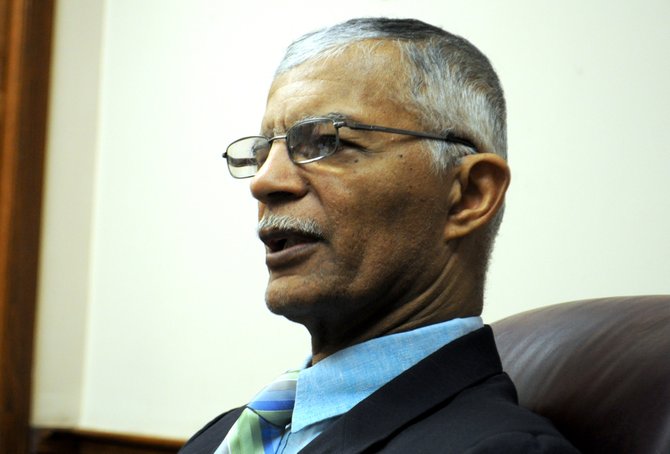
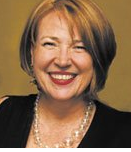
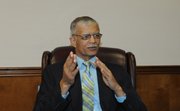
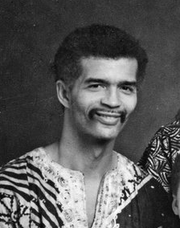
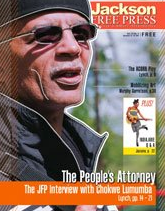

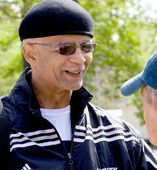
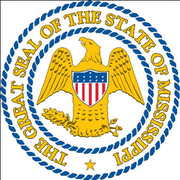

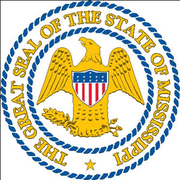
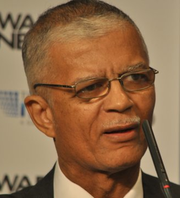

No comments:
Post a Comment